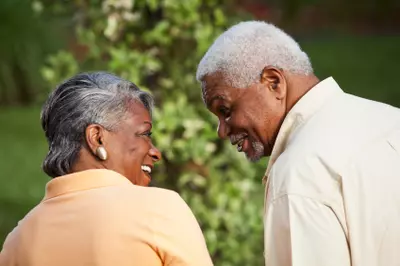The Summer of Wellbeing, Part V

(Note: this article is part of a series. You may want to read the previous installments, Moving Your Body, Feeding Your Body, Reducing Stress, and Cultivating Positive Emotions first.)
George Vaillant is the current director of a Harvard study that has followed the same group of men for over 70 years in an attempt to define what makes people happy and healthy. Vaillant spent years studying the effects of diet, exercise, upbringing, life circumstance, smoking, alcohol use, and other life activities on personal wellbeing.
The complexities of a longitudinal study like this are enormous, but Vaillant recently synthesized decades of data into a surprisingly simple thesis: "The only thing that really matters in life are your relationships to other people."
The importance of other people
You probably don't need scientific research to know that having a laugh with a family member or confiding in a trusted friend can boost your mood. Human beings are social creatures, and we affect one another deeply. Think about your own interactions with the people around you: if a close friend is in a bad mood, chances are it'll rub off on you; likewise, if a stranger smiles at you on the sidewalk, you'll probably get a little burst of pleasure.
There is an abundance of evidence to back up the idea that strong relationships are linked to good physical health too, though scientists aren't yet sure exactly why it works. It's clear that healthy relationships reduce stress (which, as we've discussed, can trigger a host of health problems, from cardiovascular issues to anxiety and depression), and some researchers have suggested that positive interactions with other people boost immune function. It's also been noted that patients who have strong social support are more likely to adhere to their medical treatment and implement healthy behaviors. Workplaces have even begun to consider the need for group interaction when designing office spaces because employees are happier and more productive when they're able to interact positively with other people.
The effects of isolation
As you might have begun to suspect, just as healthy relationships produce wellbeing, loneliness and isolation can have negative effects on emotional wellbeing. This seems like a no-brainer: you can probably recall a time when you felt lonely or separated from close friends. This kind of separation from others can induce feelings of stress, anxiety, and sadness.
But the research extends to the impact of isolation on physical health, too. Scientists at UCLA have found that a lack of social support is linked to heart disease, and Harvard recently reported a study that linked a lack of strong relationships to a 50% increased mortality rate-that's a risk equivalent to smoking 15 cigarettes a day!
Cultivating better relationships
Let's be clear about something: this research doesn't mean that if you're single, you need to hastily jump into a relationship, or if you're childless, you should scramble to expand your family. What it does mean is that you should identify the most important connections in your life--a valued friend, a trusted colleague, or a spiritual community--and invest your time and energy into strengthening and enjoying those connections.
Here are some tips to develop and nurture strong relationships:
- Express gratitude to the people who are in your life. Not only does practicing appreciation boost your own level of life satisfaction, but those you express it toward will feel more connected to you and learn to appreciate you as well.
- Practice compassion. It sounds like common sense, but it bears repeating: people will respond to you with kindness and empathy if you show it first. Bonus: compassionate people have lower levels of stress and better immune systems.
- Join an online community. The internet has made it possible for people to connect across the globe, so even if you live in a small community, you'll be able to find someone you can share with. (Tip: check out our social support info page for tips on using internet communities safely).
- Join a cause or volunteer. You'll meet people who share your passion, and volunteering literally makes the heart grow stronger.
Fostering and developing close relationships isn't an overnight project--it's a lifelong endeavor that takes time, patience, and energy. But it's a key element to wellbeing and offers physical, emotional, and spiritual rewards. The greatest part is that it's totally free and available to you all the time--all you have to do is begin to turn your attention to the people around you.


